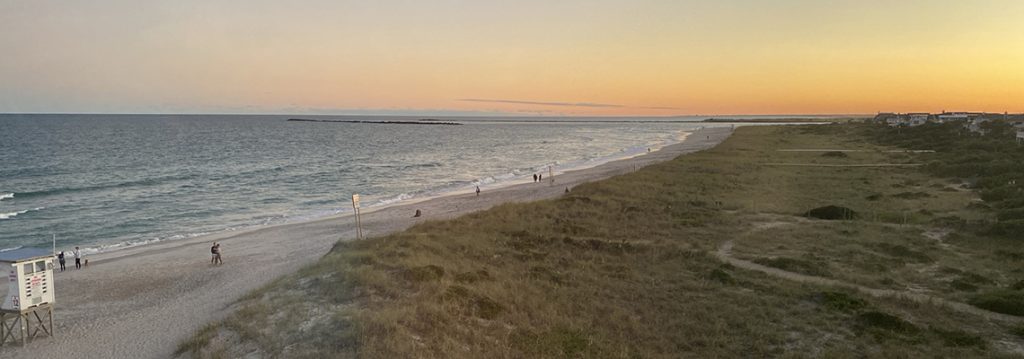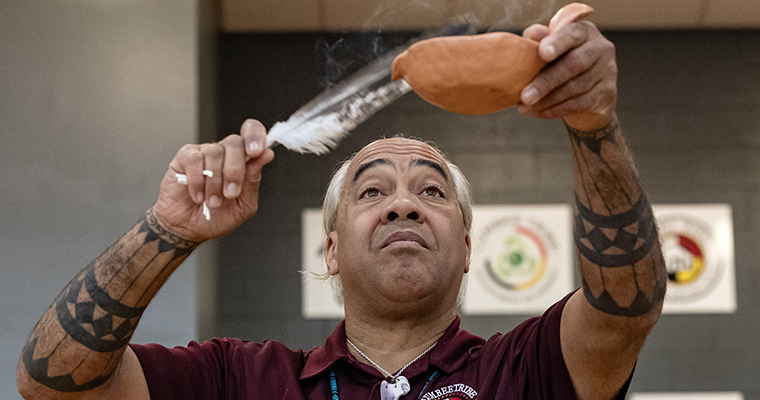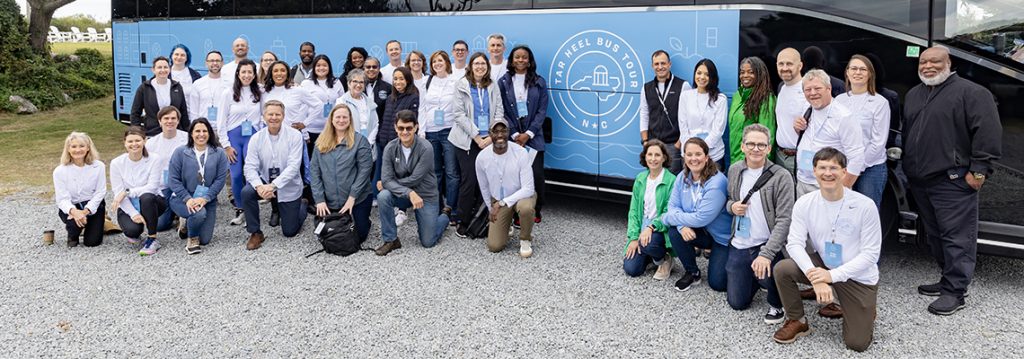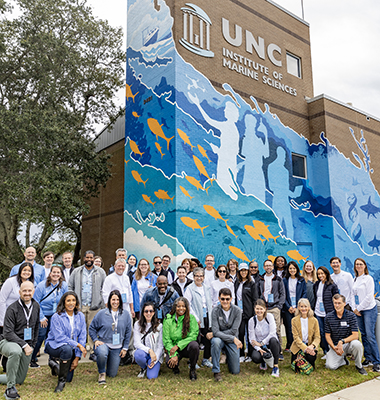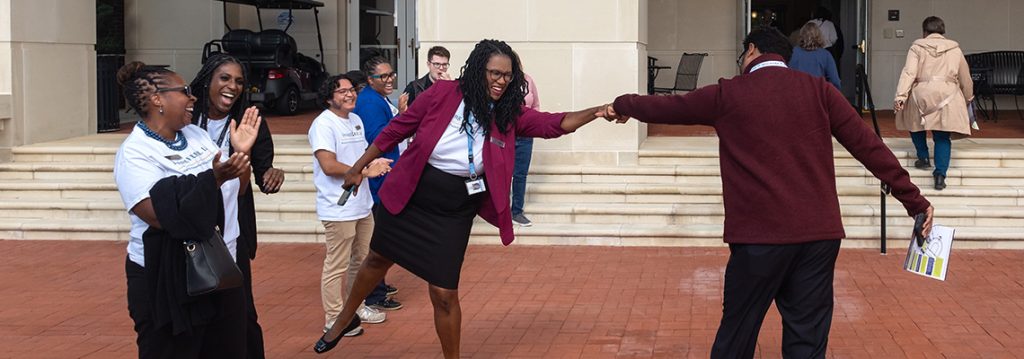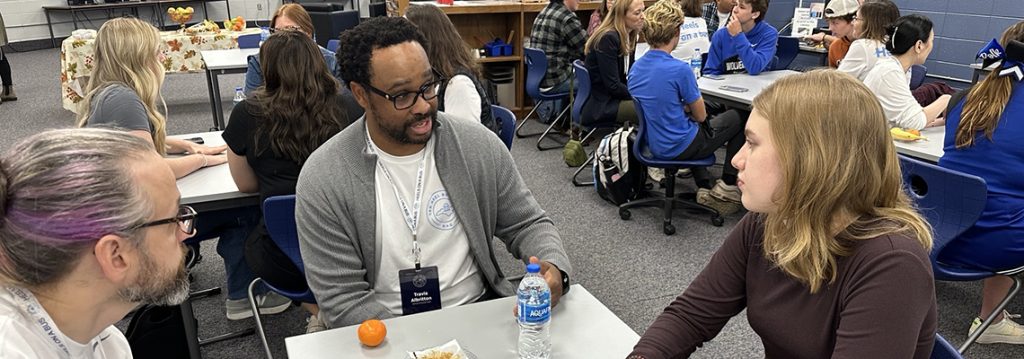by Matthew Smith
Getting to know the communities we serve is an important task for our University of North Carolina at Chapel Hill School of Social Work representatives. That’s why three of our faculty members took part in the three day 2023 Tar Heel Bus Tour. More than 70 faculty and staff members representing 13 schools departed on a pair of buses covering the eastern and western halves of the state, making 21 stops in 19 counties. Learn more about their trip and what they learned as part of the tour. Photos submitted by Travis Albritton, Karon Johnson, Rebecca Rebbe, Johnny Andrews and Jon Gardiner.
I was also able to meet some of the awesome faculty and administrators at UNC who I shared this experience on the bus with. We came from across the university with diverse backgrounds, research and teaching interests, and roles at UNC. These are folks who I probably would not have met and interacted with if not for the bus tour, but we bonded and became friends through this shared experience. I learned so much from each of them and we identified some great opportunities for future work together. But perhaps most importantly, I have a sense of community with my THBT mates and with UNC.
— Assistant Professor Rebecca Rebbe
I have already had conversations with people across campus about community-based collaborations and ways to keep the momentum of inspiration going. I believe there is fertile ground for innovative partnerships, as well as for deepening connections with long-term partners such as public health and nursing. I have also connected with community organizations in eastern North Carolina that have expressed interest in hosting social work students for practicum opportunities. This will enrich the communities by attracting talent invested in rural communities or providing opportunities for people who want to stay in their communities and serve. Our online Master of Social Work program is well suited for the collaboration opportunities available, which is very exciting!
— Clinical Assistant Professor Karon Johnson
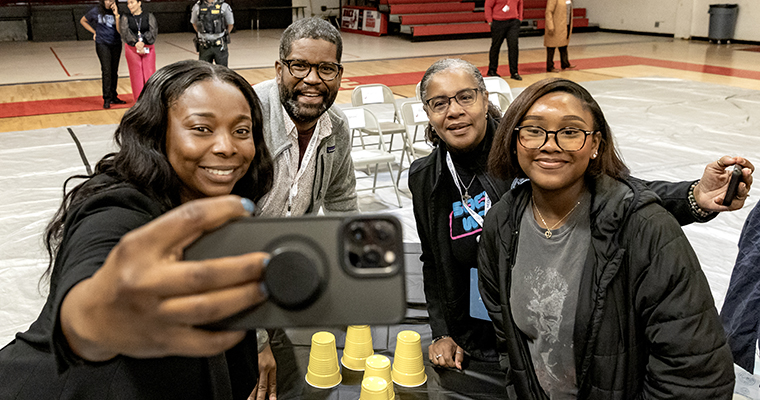
I gained a deeper understanding of and awareness of the ways in which UNC impacts the state of North Carolina. It was interesting to see the numerous ways UNC plays a role in helping communities move forward. I witnessed how the university helps communities rebuild and move forward after massive layoffs and job loss; the role the university plays in helping advance public-private partnerships; and the ways in which the university creates opportunities for high school students from across the state.
— Associate Dean of Diversity, Equity and Inclusion Travis Albritton
For more information about the Tar Heel Bus Tour, visit the tour’s website online.
In the News: UNC brings busload of great minds, innovative ideas to help Canton problem-solve following mill closure
Related stories
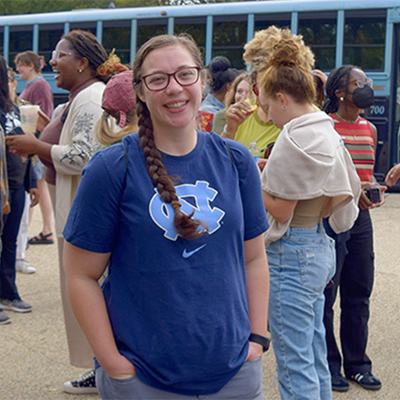
MSW students attend immersive experience to Washington D.C.
UNC School of Social Work graduate students traveled to Washington, D.C., to deepen their study of oppression and resistance.

CDC award expands child violence researcher’s work
Rebecca Rebbe has received a prestigious K01 Career Development Award from the Centers for Disease Control and Prevention.








